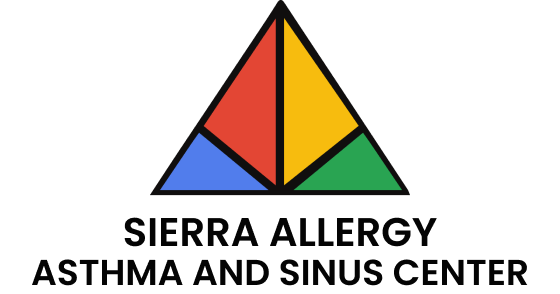As the seasons change, many people experience sneezing, itchy eyes, and other uncomfortable symptoms. These could be more than just a passing cold; they might signal seasonal allergies. Recognizing the signs early on is key to managing your symptoms and finding relief. This article will help you understand common symptoms of seasonal allergies and guide you on when to seek help from an allergist or immunologist.
What are seasonal allergies?
Seasonal allergies, also known as hay fever or allergic rhinitis, occur when your immune system reacts to airborne allergens like pollen from trees, grasses, and weeds. These allergies typically flare up during specific seasons, with spring and fall being the most common times of year for allergy sufferers. If left untreated, seasonal allergies can disrupt your daily life, causing discomfort and frustration.
Recognizing the symptoms early and seeking guidance from an allergy doctor can make a world of difference in improving your quality of life.
1. Sneezing
One of the most obvious and common symptoms of seasonal allergies is sneezing. You may notice that your sneezing episodes come on suddenly and last for a longer time compared to sneezing caused by a cold. This happens because your body is trying to get rid of the allergens that it perceives as harmful. Sneezing multiple times in a row is a telltale sign of a seasonal allergy reaction.
When to seek help
If sneezing becomes frequent and disrupts your daily activities, consulting an allergist can help. An allergist can provide a proper diagnosis and create a treatment plan, which may include medications or allergy shots.
2. Runny or stuffy nose
Seasonal allergies can cause your nose and nasal passages to become runny or congested. This occurs when your body produces excess mucus in response to allergens like pollen. Some people also experience postnasal drip, which is when mucus runs down the back of your throat, causing a sore throat or cough. If you’ve had a stuffy nose that lasts for weeks, it’s more likely to be an allergy than a common cold.
When to seek help
A stuffy or runny nose that lasts for more than two weeks, especially when paired with sneezing and itching, should prompt a visit to your allergy doctor.
3. Itchy or watery eyes
Itchy, red, or watery eyes are another common symptom of seasonal allergies. When allergens like pollen come into contact with your eyes, they can trigger an allergic reaction known as allergic conjunctivitis. Your eyes may feel irritated, dry, or swollen, making it hard to focus or go about your day.
When to seek help
If over-the-counter eye drops aren’t providing relief and your symptoms last beyond a week, it’s time to see an immunologist or allergist. They can recommend stronger treatments to help soothe your eyes.
4. Fatigue
Allergies can take a toll on your energy levels. Many people don’t realize that fatigue is a symptom of seasonal allergies. The constant fight between your immune system and allergens can leave you feeling drained. This can be made worse if your symptoms, like a runny nose or cough, are disrupting your sleep at night.
When to seek help
If you’re feeling excessively tired and can’t pinpoint the reason, it’s worth talking to an allergy doctor. They can determine if your fatigue is allergy-related and help you manage it so that you can get your energy back.
5. Coughing
Coughing can occur as a result of postnasal drip or throat irritation caused by allergens. If you find yourself with a persistent, dry cough during certain times of the year, it could be due to seasonal allergies. In some cases, coughing may become more severe if allergies trigger other conditions like asthma.
When to seek help
If your cough doesn’t go away or worsens over time, especially if accompanied by wheezing or difficulty breathing, you should visit an immunologist. They can assess whether allergies are contributing to asthma or other respiratory issues.
6. Itchy throat or ears
Allergies can cause itching in areas beyond just your nose or eyes. You might experience itching in your throat, ears, or even on your skin. This can be extremely uncomfortable and lead to excessive scratching, which may worsen the irritation. An itchy throat can also lead to difficulty swallowing or speaking clearly.
When to seek help
If your throat or ear itching persists and interferes with your daily routine, an allergist can provide solutions to ease these symptoms.
7. Wheezing or shortness of breath
In some cases, seasonal allergies can trigger respiratory issues, such as wheezing or shortness of breath. This is especially common in individuals who also have asthma. During allergy season, allergens can cause inflammation in the airways, leading to difficulty breathing and wheezing.
When to seek help
Wheezing or shortness of breath should never be ignored. If you’re experiencing these symptoms, it’s crucial to see an allergy doctor right away. They can help determine if your allergies are triggering asthma and recommend appropriate treatments, such as inhalers or other medications.
How can an allergist or immunologist help?
An allergist or immunologist specializes in diagnosing and treating allergic conditions. They can help determine the specific allergens causing your symptoms and create a personalized treatment plan that works for you. This may include:
Allergy testing
To identify your triggers, an allergist can conduct skin or blood tests to pinpoint the specific allergens affecting you.
Medications
Your allergist might recommend antihistamines, nasal sprays, or decongestants to manage your symptoms effectively.
Allergy shots (immunotherapy)
For long-term relief, allergy shots are a highly effective option. They work by gradually desensitizing your immune system to allergens over time, helping reduce symptoms significantly.
Sublingual Immunotherapy (SLIT)
Sublingual Immunotherapy is a treatment method for allergies that involves placing small amounts of allergen extracts under the tongue to build tolerance over time. It works by targeting the root cause of allergic reactions and reducing symptoms.
Biologics
If your allergies are severe, your doctor may suggest biologic medications that target specific pathways in the immune system to prevent allergic reactions.
When should you see an allergy doctor?
If you experience persistent symptoms that interfere with your daily life, such as frequent sneezing, itchy eyes, and nasal congestion, it’s time to visit an allergist or immunologist. Seasonal allergies can be managed effectively with the right treatment plan, and you don’t have to suffer through them year after year.
Conclusion
Seasonal allergies may be common, but they don’t have to control your life. By understanding the symptoms and knowing when to seek help, you can take charge of your health and find relief. Whether you’re dealing with sneezing, itchy eyes, or fatigue, an allergist or immunologist can provide expert care tailored to your needs.
Sierra Allergy Asthma and Sinus Center is here to help you in every step of the way. Our compassionate team of allergy doctors will work with you to ensure you’re living as comfortably and symptom-free as possible. Care for yourself and your loved ones by taking action today—relief is just a call away.

